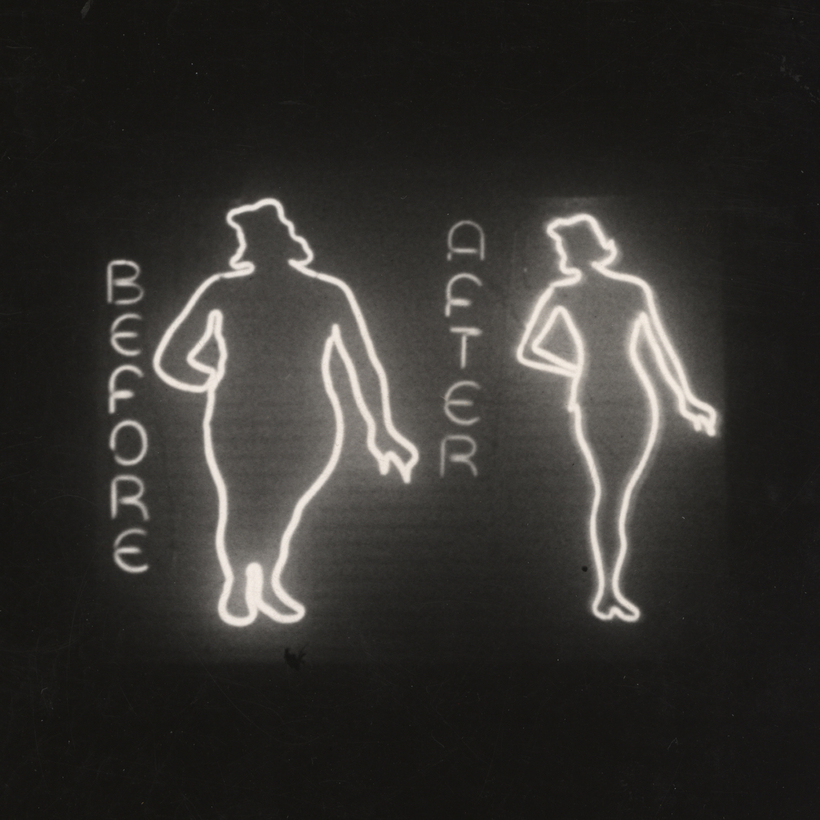It began, as so much of life does, with a lie.
In order to join Noom, the weight-loss app that bills itself as definitely not a weight-loss app, I had to get on a scale. Nope. So I made up a figure, one that I hoped was more than I actually weigh so that when I did get up the courage to weigh myself, I’d look like a huge success. To whom, I don’t know, but at 3:00 a.m., when I downloaded the app in desperation, that was my thinking. I kept recalling a tweet from one @MarthaKelly3 on Twitter: “Supposedly <Noom> is an innovative weight loss program but I am desperately hoping it’s a cult.”
I know this will come as a shock, but 2020 wasn’t kind to our waistlines. At no other point in history were so many individuals asking the question: What will I have for dinner tonight, the cake or the pizza? No, let’s make it the gin. According to a study in the JAMA Network Open journal, the average pandemic stay-at-home gained about two pounds a month. So it also should not be shocking to know that weight apps, already popular, were downloaded last year at a staggering rate. One study found that downloads of fitness and health apps increased by nearly 50 percent worldwide in the first half of 2020.
Two of the most popular are Noom (“moon” spelled backward; don’t ask) and WW, formerly Weight Watchers. WW has been around forever, so perhaps its growth was not as dramatic, but upstart Noom saw its revenue double in 2020. Here are some other useful 2020 statistics: according to Noom, users’ snacking increased by 198 percent in July 2020 relative to the beginning of the coronavirus crisis; and among the new calorie-burning activities logged on the app was … housecleaning. So, win-win.
It should not be shocking to know that weight apps, already popular, were downloaded last year at a staggering rate.
Putting aside our desire to drop a few—or a lot—and feel better, there’s a looming question at the heart of the Noom/WW explosion: How do you convince people that losing weight is not pathetic and impossible but kind of chic? You can’t, but at least you can try to assure them they’ve just downloaded the Yeezy of weight-loss apps.
Both Noom and WW have their own stans. But the truth is they’re not all that different. Both want to de-emphasize calorie counting and the diet mindset: it’s all about wellness, not weight loss.
WW shuns calorie counting altogether for a point system allotted to different types of food, and Noom, while allowing you to check calories, uses a color system: green, yellow, and red, referring to the various calorie densities of the stuff you’re eating. Both make logging the food you’re eating incredibly simple, with apparently everything you have ever eaten or imagined eating loaded into their databases, including Milk-Bones.
Well, maybe not everything. Semen is not listed, or wasn’t until Noom’s calorie logger gave me the cheerful prompt “Can’t find it? Let’s add it!” (Fifteen calories. The same as 1.5 ounces of broccoli. Your call.)
Both have exercise trackers and coaches and both offer group support, where anxious strangers tell you their issues with cheesecake. I am right there with them, though I do get annoyed at the inevitable humble-bragger who seems placed in the group just to show the rest of us up. (I’m talking to you, Jason, Mr. I-learned-to-pound-water-as-an-athlete, I-biked-one-hour-and-burned-675-calories. You and your Peloton can bite me.)
Semen is not listed, or wasn’t until Noom’s calorie logger gave me the cheerful prompt “Can’t find it? Let’s add it!” (Fifteen calories. The same as 1.5 ounces of broccoli. Your call.)
WW does have one extra that’s missing from Noom: prizes! You don’t have to lose weight to win; you can score that yoga mat or wineglass (with measuring line to tell you the proper serving size) just for participating. As someone who finds the ability to win cheap stuff I don’t need incredibly motivating, I think Noom is missing a key opportunity here.
But what distinguishes them the most is whom they are making their pitch to. Neither will reveal demographic details. But Noom, which has been present in its current incarnation for only the past five or so years, has clearly decided to focus on millennials.
It’s not only the ads, full of friends and lovers, few over 40. It’s the daily psychology lessons fed to us in cutesy bite-size nuggets, the daily references to the scientific underpinnings of the program coupled with the insistence that it’s really not about weight loss at all, the casual relationship to spelling and grammar acceptable to a generation that relies on autocorrect: Noom seeks to make dropping pounds intellectual yet adorably dorky, as if all the copy was written by Zooey Deschanel. #Noomnerds, as they call themselves, are extremely comfortable with technology (Noom exists only on smartphones, not in FTF meetings) and with self-revelation on social platforms.
Noom seeks to make dropping pounds intellectual yet adorably dorky, as if all the copy was written by Zooey Deschanel.
In the coolness department,Weight Watchers, which has 4.6 million subscribers to Noom’s 45 million, clearly thought it had some catching up to do. That, at least, is my explanation for how Weight Watchers became WW. One very late night when nobody had had a lot of sleep, it was decided that slightly tired brands would get a pick-me-up if their names required less time to say.
Thus Kentucky Fried Chicken became KFC and Dunkin’ Donuts becomes Dunkin’. WW had a eureka moment. Apparently, WW does not connote what Weight Watchers means to boomers, which is “Mortified Lady Getting Fat-Shamed in the Community Room of Her Synagogue.” Now it means Ciara cooking with her kids. Or Oprah Winfrey on a bicycle. Or something.
But whatever it means, one thing is clear: WW and Noom both work if you work them. WW is more my age and my people, but I’m sticking with Noom because, more than anything, it’s about accountability: in the end, staring down calorie counts and tabulating them every day is what I need to get real. And Noom tells me, a hundred different times during its daily psych lessons, that the most important facet of weight loss is belief—the conviction that change is possible.
I do believe—and this shocks me. Because, for my entire life, I have been in the camp of my friend Rob Rosenthal, a marketing consultant and cookbook author, who offered me his nuanced observation about weight loss. “My close friend is a clinical psychologist,” Rosenthal said. “I told him I had to lose weight and that I know exactly how, but that I’d really appreciate his professional advice as it pertained to my mental approach. Due to his years of academic training and professional experience, he was able to advise me instantly and with only seven words. He said, and I quote, ‘Shut your piehole, you fat fuck.’”
Four weeks into this and I still haven’t gotten on a scale. I’m giving it another month. Meanwhile, though, my inspo pants (you know, the ones that don’t fit and never did but you didn’t return them because someday … ) can be zipped up. All right, only if I lie down, and only if I take shallow breaths like I’m about to have an asthma attack. Still. That’s something, right?
Judith Newman is a New York–based writer and the author of To Siri with Love


